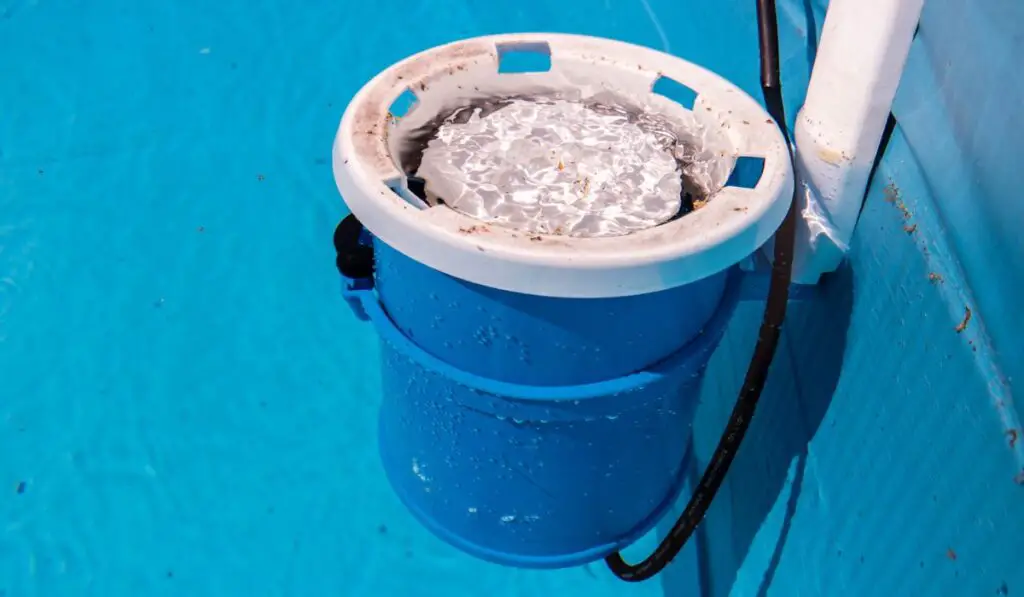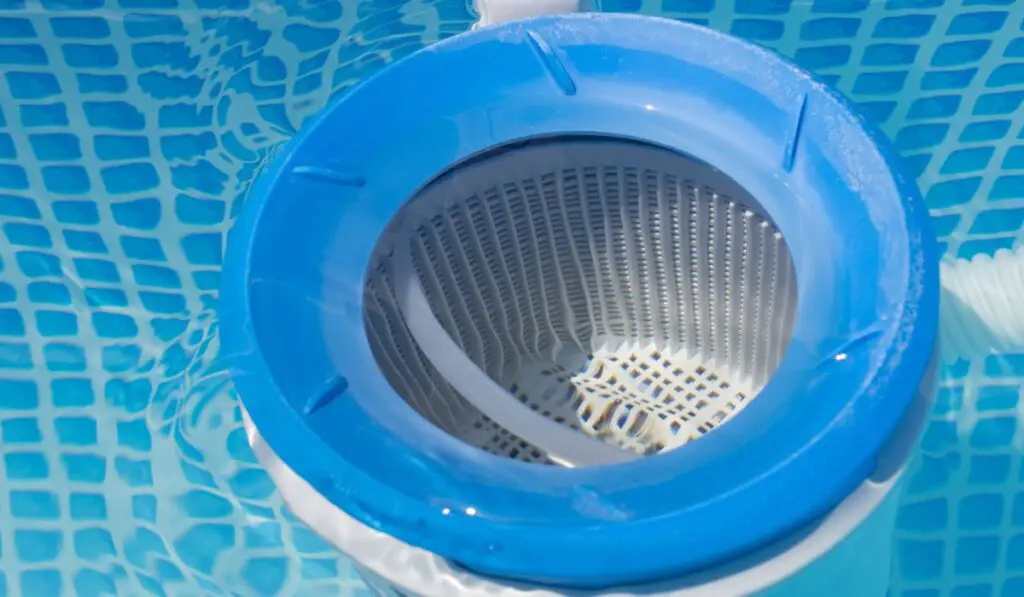Cleaning your pool filter is a crucial part of pool maintenance that’ll help you get the longest life out of your pool. But let’s face it — the cleaning itself isn’t very fun, and most people have trouble figuring out when to do it, which filter cleaners to use, and how to do it properly. So, how should you clean your pool filter, and how often?
As a rule of thumb, you should clean your pool filter every time its pressure gauge shows 8 PSI (pounds per square inch) or more above the normal operating pressure. To clean it properly, wash off large debris, then soak it in a cleaning solution. Next, rinse it thoroughly and let it dry fully.
While it’s true that you’ll eventually have to replace the filter cartridge, in the meantime, you just need to clean it regularly to remove oil, dirt, and minerals that accumulate over time. Let’s take a closer look at how to proceed.
How Often Should Your Pool Filter Be Cleaned?

You should clean your pool filter every time the filter pressure gauge reads 8 PSI or more above the normal operating pressure. Alternatively, you can clean it at least every 6 months, assuming it’s adequately sized and you haven’t run into issues like bad algae blooms and heavy bather loads.
Since each type of filter has its unique needs, the level and frequency of maintenance required will also vary as follows:
- If you’re using a sand filter, weekly backwashing should be on your to-do list. Apply a special filter cleaner every season to ensure proper filtration and circulation.
- Clean a DE (Diatomaceous Earth) filter with special cleaners at least once every season. You should also perform a full inspection and cleaning at the end of the year.
Check the pressure gauge to determine when it’s time to backwash. A higher pressure reading means lots of debris have clogged your filter.
- Clean a cartridge filter weekly, monthly, or less frequently, depending on how big it is and how often you use your pool. A cartridge filter doesn’t always need backwashing, but you need to disassemble it every time you’re cleaning it.
If you notice the water quality isn’t impressive, your best bet is to clean the filter and check for damages as you do so. Also, keep track of the filter pressure and the date of cleaning so that when the frequency of the cleanings has doubled, you know it’s time to replace the filter.
How to Clean Your Pool Filter Cartridge
Over time, debris and chemicals will build up in your pool filter, clogging it and making it less effective. But if you clean the filter cartridge properly, you won’t have to deal with cloudy water and yucky stuff like bacterial growth.
Here’s how to properly clean your pool filter cartridge:
- Take the filter out and remove large debris particles. Use a garden hose with a high-pressure cleaning head like Filter Flosser (on Amazon) to clean deeply between the peats from top to bottom.
- Once you’ve blasted loose debris, soak the cartridge filter in a cleaner solution like Natural Chemistry’s Filter Perfect (on Amazon) to remove oil, minerals, and scum. You should soak the filter for a minimum of six hours, and you can do this overnight when you don’t have lots of tasks to handle.
- Remove the cartridge from the cleaning solution and rinse it thoroughly with clean water. For best results, let the filter dry before putting it back into the filter tank. However, don’t expect the filter to be perfectly clean. It’s still functional even if it appears a little dirty.
While we need a significant amount of pressure to knock off large debris, you shouldn’t use a power washer. The force of a power washer can quickly wear out filter materials, limiting its service life.
How Long Do Pool Filters Last?

Oversized pool filters may last up to 3 years, while a cartridge filter element that properly fits your pool should serve you for 12 to 18 months. Undersized filters tend to last a year or less because they usually work at higher pressures than they’re designed to withstand.
However, you’ll eventually need to replace your filter cartridge whether it’s served you for one, three, or five years. So don’t just look at the time factor — you want to look at its overall performance in terms of the water quality and the amount of damage it has taken over the years.
For example, there are high chances your pool filter is terminally ill if the water stays cloudy or green even if you maintain proper chemical balance. This also goes if you’re forced to use more sanitizer or run the filter for longer.
Moreover, you should check for tears in the fabric and cracks in the rubber end cap of the filter every time you clean it. If you notice significant damage, it’s a good time to replace the filter.
